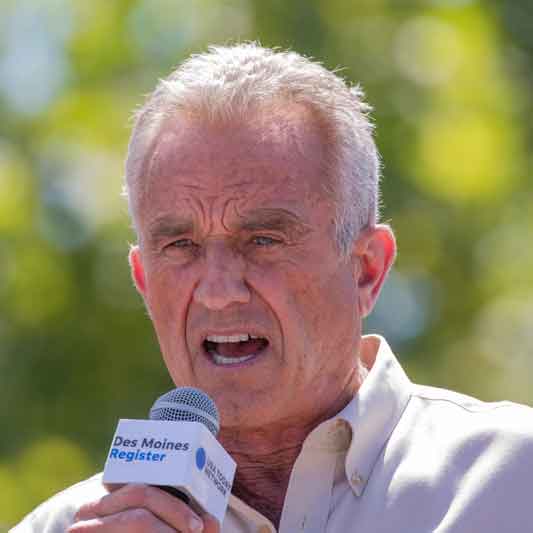In a congressional hearing held on Wednesday, May 14, Health and Human Services Secretary Robert F. Kennedy Jr. encountered criticism from lawmakers for his reluctance to endorse vaccines for childhood diseases, despite the United States experiencing its most severe measles outbreak in decades.
Rep. Mark Pocan (D-Wis.) inquired if Kennedy would vaccinate his children against measles today, to which Kennedy hesitantly responded, “Probably for measles.” Regarding chicken pox, Kennedy inaccurately stated, “In Europe they don’t use the chicken pox vaccine.” When asked about polio, a disease eradicated in the U.S. since 1979 due to vaccination, Kennedy avoided giving a direct answer.
“I don’t want to be giving advice,” Kennedy informed the committee. “I don’t think people should be taking medical advice from me. Everybody can make that decision.”
During the hearings, Kennedy faced bipartisan scrutiny regarding substantial staffing reductions. Rep. Mike Simpson (R-Idaho) particularly questioned Kennedy’s stance against water fluoridation, expressing concerns about its potential effects on dental health.
The hearings were also disrupted by public health advocates and AIDS activists, who protested Kennedy’s policies and past statements.
The discussions took place as the nation contends with a rapidly spreading measles outbreak. As of May 14, 2025, over 1,000 cases had been reported across 31 states, marking the largest outbreak in 25 years, with Texas reporting over 500 cases. The outbreak have resulted in the deaths of at least three unvaccinated individuals, including two children in Texas.
Rep. Rosa DeLauro (D-Conn.) expressed frustration with Kennedy’s responses, reminding him of his role as America’s leading health official. “HHS makes medical decisions every day. You’re making medical decisions every day. You’re the secretary of HHS,” DeLauro stated. “You have tremendous power over health policy. I’m really horrified that you will not encourage families to vaccinate their children.”
Kennedy’s unclear position on vaccines follows months of what public health experts call “doublespeak” on the subject. In March, as measles cases rose, Kennedy co-wrote an op-ed asserting that vaccines protect children from measles and support community immunity. Simultaneously, he emphasized that vaccination is “a personal decision” and supported unverified treatments like vitamin A supplementation.
Some healthcare providers have voiced concern over Kennedy’s advocacy for alternative treatments. According to NPR, several children in West Texas were hospitalized with vitamin A toxicity following Kennedy’s public remarks on the vitamin’s benefits against measles.
Before his appointment as HHS Secretary, Kennedy was known for propagating debunked vaccine claims, including the incorrect belief that vaccines are linked to autism. He previously led Children’s Health Defense, an anti-vaccine group that unsuccessfully sued New York over school vaccine mandates during a 2019 measles outbreak.
The ongoing outbreak is primarily affecting unvaccinated groups. The Texas Department of State Health Services reports less than 2% of confirmed cases occurred in vaccinated individuals. Public health officials consistently emphasize that the measles, mumps, and rubella (MMR) vaccine is safe and effective, with two doses offering about 97% protection.
Former HHS Secretary Alex Azar’s approach during the 2019 measles outbreak differed markedly from Kennedy’s current stance. Azar had clearly stated: “We cannot say this enough: Vaccines are a safe and highly effective public health tool that can prevent this disease and end the current outbreak.”
As the outbreak spreads further, Kennedy’s testimony complicates the federal response to a growing public health crisis. With cases rising at an unprecedented rate in decades, many health experts fear the potential return of endemic measles in the United States, potentially reversing a significant public health success of the past century.
Robert F. Kennedy Jr.’s educational qualifications do not align with typical expectations for a Secretary of Health and Human Services. His academic background includes a Bachelor of Arts from Harvard University (1976), a Juris Doctor (JD) from the University of Virginia School of Law, and a Master of Laws (LLM) in environmental law from Pace University. He is an environmental attorney and former professor of environmental law, lacking formal medical or public health education or experience, making his appointment to HHS notably controversial, especially given his history as a prominent vaccine skeptic.

